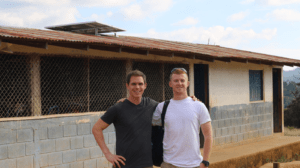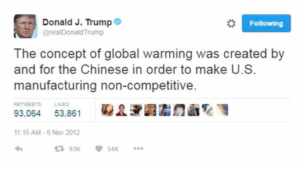
Jim Rogers is the former CEO and chairman of the board for Duke Energy. He continues to advocate for sustainable energy access as written in his book Lighting the World. More about Jim’s book can be found at https://jimrogersenergy.com/. Here he discusses the fight against energy poverty.
United Solar Initiative: Since leaving Duke you’ve written a book called Lighting the World, which points to the current state of world energy poverty. Why is energy poverty an issue?
Jim Rogers: It’s my judgement that access to electricity is a basic human right. It is foundational in that it enables medical care, education, economic development, and more efficient farming. And the efficient farming is especially important given that about 50% of people in low-income countries– and I always say low-income countries rather than developing countries because I think it’s a better way to talk about it– but in low-income countries farmers make a living in the agriculture sector.
And the UN has finally found that electricity should be one of their sustainable development goals for 2015- 2030. And this is a breakthrough for the UN because when setting their goals in 2000, they failed to recognize access to electricity as a millennium development goal.
USI: What are the specific benefits to fighting this form of poverty in our world?
Rogers: I think that the math is stunning. About 1.2 billion people have no access to electricity. Of the 1.2 billion, 600 million plus are in Sub-Saharan Africa, roughly 300 million are in India, another 100 million in Indonesia, and the remainder scattered around the world. So bringing access to electricity basically enables societies to develop and to grow, to start to lift people from poverty. And actually if you study the US, a high income country in the world today, in the 20th century providing access to electricity and all that enables fundamentally changed our economy, transformed the lives of people, extended the life expectancy for both men and women. So access to electricity has played a very dominant role in the development and the cultures of high-income countries.
USI: What role do you see for-profit energy companies/utilities playing in the fight to end energy poverty?
Rogers: My focus has been on the 1.2 billion people in rural areas of low-income countries. There has been a reluctance of state-owned utilities to extend the grid to these rural areas. And the important fact today is that the price of solar has fallen to a place where it is cheaper and matches the capability to pay better in these low income countries than extending the grid. So the important point is we are able to bring electricity to these people, help lift them from poverty, give them an opportunity to own and then deploy technologies up the ladder of the various solar technologies. And we do all of this in a way that puts them on a trajectory that allows them to be climbing out of poverty without adding to the carbon emissions in the world in the same way it has occurred in high-income countries.
USI: You’ve advocated for energy efficiency and a transition to a low-carbon future. What do you see as key to that transition?
Rogers: Well the transition is already underway. And in the last decade the falling renewable cost, specifically of wind and solar, has really driven the replacement of coal plants with natural gas, especially shale gas, which has 50% the carbon footprint of coal. Renewables have zero emissions, and at the end of the day they have grown dramatically. The way I think about it is, whether you’re in a high-income or low-income countries, five years ago solar wasn’t as cost effective or competitive as other alternatives. And actually my writing of the book couldn’t have occurred five years ago because I couldn’t have made the case solar was a more affordable alternative and matches the increasing capability to pay as people get on the income trajectory brought on by greater economic development. So I think the development of solar and wind is transforming how we provide electricity both in the US and other high-income countries as well as in the rural areas of low-income countries around the world.
USI: Why solar?
Rogers: There are several things that underpin the importance of solar today. One is you’ve seen the fallen price that makes it affordable and competitive with other alternatives. The other reason solar is so important- it is basically carbon free and allows us to continue crossing the bridge to a low carbon world. Coupled with that is the fact you’ve seen the emergence of storage technologies which really either way addresses the intermittence of solar. So my belief is that in the longer-term, and you’ve already seen this recently, solar trumps wind because it can be distributed. And at the end of the day, solar will be cheaper, solar will be distributed, solar will lead to a more resilient grid in the high-income countries and will lift people out of poverty in the low income countries.
Article- Meredith Ratledge




